This is an audio transcript of the Political Fix podcast episode: ‘Starmer’s ‘weird’ week — from Liverpool to New York’
[MUSIC PLAYING]
George Parker
Hello and welcome to Political Fix from the Financial Times with me, George Parker. Coming up, they won an election by a landslide. That wasn’t exactly obvious at the Labour party conference. So why wasn’t the Labour party in a more triumphant mood? Plus, what to make of Labour’s plans to ramp up capital spending after its repeated warnings that the state coffers are empty? And as Starmer joins world leaders at the UN in New York, what does the new Labour government bring to the western alliance? Joining me in the studio are Political Fix regulars Robert Shrimsley. Hi, Robert.
Robert Shrimsley
Hello there, George.
George Parker
And Miranda Green.
Miranda Green
Hello, George.
George Parker
Right. So we’re all slightly bleary-eyed after a few days on the Albert Dock in Liverpool. One Labour veteran I bumped into in the Pullman Hotel bar, the main conference bar, heaving as usual, said there was one word to describe the atmosphere at the conference and that was weird. Robert, how did it feel to you?
Robert Shrimsley
Well, it was certainly more muted than you’d expect as you said, for a party that has just got over 400 seats in a general election, absolutely stonking landslide, back in power after a very long time. And that certainly wasn’t the mood. This was not a celebratory conference. And it was very strange. Obviously there had been the row over winter fuel payments for pensioners. This is the drums of doom coming out of Downing Street, which have clearly dampened the mood.
And then on top of which, just before the conference kicked off, we had this row over the freebies from Lord Alli over Keir Starmer’s suits and other shadow cabinet members’ suits, and then it moved on to hospitality, football matches and pop concerts. Now we’ve got into flats. So I think the whole thing was people feeling that they’re not doing as well as they should, and they couldn’t be as happy as they’d like to be, because this government doesn’t feel like it’s really motoring yet.
George Parker
No. Rather, it did seem subdued and a little bit awkward, didn’t it? I mean, I just wondered how it felt for you. And symbolically, of course, the last act of the conference was the conference for defeating the leadership on the winter fuel payment issue.
Miranda Green
Well, that’s right. And they thought that by postponing that vote, which was supposed to be earlier in the week, that that was good news management, but actually it meant that the final thing that people came away from the conference was a defeat for the platform that was quite old world, quite retro, and didn’t feel that great, particularly after the Reeves and Starmer speeches did feel as if they clawed back a bit of momentum because the rest of the week was . . .
I agree. I mean, I thought it was positively glum, actually. You know, I’d bump into newly elected Labour MPs or senior people in the Labour party and say, you know, as an opener, congratulations. And it was almost as if they had to remember what it was I might be congratulating them for rather than their historic, you know, landslide and a chance to be back in power and do things. So it was very, very odd.
And the rain didn’t help. And I had to actually leave my wet boots in Liverpool, which seemed symbolic of a strange few days. Having said that, you know, I feel that there was, by the end of it, some sign of what they might be intending to do, particularly in this kind of weird lull before the Budget, which I think caused a lot of the problems. Actually, there was a bit of a vacuum of news into which these negative stories that Robert’s explained rushed.
George Parker
Yeah, I mean, the sequencing was terrible, wasn’t it? I mean, the fact that there was this three-month gap between Rachel Reeves saying how terrible everything was back on July the 29th seems an age ago now and the Budget on October the 30th. That’s a big news gap to fill when there’s no money around.
And as you say, I think that the clothes thing and the spectacles thing and the suits and the accommodation, Lord Alli, all seem to be slightly trivial. But Robert, you and I remember covering the back-to-basics scams as they hit the Tories back in the 1990s — and Miranda will remember this very well too — that the trouble is once you establish a narrative, it’s quite difficult to shake it off, isn’t it, because then everything is hung on to the narrative of sleaze, essentially.
Robert Shrimsley
Yeah. I mean, I think clearly that would be what their opponents would like. And Labour did always set themselves up for this fall by a slightly holier-than-thou attitude. They had an opposition I’m Mr Integrity Keir Starmer’s approach. So the moment, you know, any of the shine comes off, it comes off quite quickly and that’s very problematic.
And you had also the rows over Sue Gray in Downing Street and whether the operation in Downing Street is functioning as it should. And the answer is it shouldn’t, it isn’t. It’s this general feeling of you haven’t quite hit the ground running as we expected.
And I don’t know about you, but I talked to numerous ministers during the week and I kept saying, well, why aren’t you further along on your plans for whatever it is your departments do? And they say, look, we were busy fighting the election. And you think, well, OK, great, but you were fighting election in order to win it, in order to do things, but you haven’t worked out enough of these things.
And I just think we’re watching the government actually still being assembled in front of us to some extent. And that explains a lot of the things that aren’t going right. And I think the thing that should worry the Labour party, because a lot of this doesn’t, you know, may well go away four years from election. What should worry them is if they don’t get these foundations of their own government right quite soon. If this all goes away after the Budget, then it doesn’t matter. But if this lingers on after the Budget, these sort of drip, drip of stories that say they’re not quite on it, then I think they’ve got a problem.
Miranda Green
Yeah. And I think that slogan that they keep going on about, we’re building the foundations. They should have built some of these policy foundations before they won, because this is a real strong contrast, I would say, to ‘97, where, you know, the Blair-Brown duo came in, started doing dramatic things quite fast and you felt there was momentum and it didn’t feel as if the momentum was with them.
And also, I think there was a lot of talk about the electoral fix that they’re in with Reform in all these second places across the seats that they won. How do they kind of see off challenges from all other parties in an era where the electorate’s so volatile? And part of that, as everyone kept saying to, you know, ad nauseam, it’s all about delivery. We’ve got to earn our place, you know, winning the next election, being given this 10 years for national renewal by delivery, delivery, delivery. And if you’re gonna deliver, you have to know what it is you’re actually intending to do and be getting on with it quite soon. So, you know, I do think there is a little bit of a problem. There is early days, you know, it’s only 10, 11 weeks since they won. But, you know, if you’re gonna have this kind of sober, workmanlike attitude, then you really do need to be doing the work.
Robert Shrimsley
I mean, I agree. But I mean, your counter-narrative is important because I do think it is very early. And if this all dries up and they get on with the work of governing and, you know, party conferences are not real-world events. So in three months’ time, the up scenario is that we’ve forgotten all about this. They’re getting on with it. We’re talking about the Budget and the money they’re putting into health or whatever it is and these early things just look like a blip. The problem is, what if they don’t look like a blip?
George Parker
And Miranda, what do you make of Keir Starmer’s speech? What do you think he was trying to achieve? It was billed in advance, wasn’t it, setting out some of the sunlit uplands ahead if the party and the country sticks to the hard road he was mapping out. What do you make of it?
Miranda Green
Well, I thought that was a good speech, you know, in terms of its kind of construction. I did think it sort of addressed some of those questions about can you please explain where we’re all headed, you know, on the Labour party train to which people bought a ticket. But again, it was sort of sober and serious to the point of sort of slight sermonising. And, you know, that has been an unfortunate contrast with this backdrop of stories about freebies and all the rest of it. So I think there is a little bit of a kind of, you know, striking the tone of the vicar, both about Starmer and Reeves. It’s kind of a matter of taste, that stuff. I mean, I actually thought Reeves’s delivery, which, you know, she was slightly ridiculed for putting on a bit of a smile to show her “this way to the sunny uplands”.
George Parker
A rictus smile. Yeah.
Miranda Green
But I don’t mind that kind of we’re sensible people trying to, you know, take sensible steps in the right direction. But I still feel there’s a bit of lack of articulation of where we’re all supposed to end up, what the destination is.
Robert Shrimsley
I really liked Keir Starmer’s speech, not so much as a piece of rhetoric to inspire the country or win over the voters, but I liked the fact he advanced a couple of really strong ideological arguments and set some markers for what he was about. I like the fact that he said things like, well, if you want more prisons, they’re gonna have to be built near somewhere. And if you want more homes and pylons, these things are gonna have to be built if you want the clean energy. And so the first argument he made, which I really liked, was the one about hard choices against cheap and easy answers, setting him essentially the Labour party up as saying we are the party of serious, difficult choices which the country faces. And the alternative is easy answers, which we now know don’t work. And I thought that was a coherent argument he put it through.
And the second argument I liked as a piece of political thinking was the point about the state being back. You know, the taking back control is a Labour slogan, he said, and that we are gonna be a very active, in-your-face government, intervening all over the place because we believe in the power of the state to do good. So you can agree with that or disagree with it. But I thought that as a piece of political argument, it held together well.
Miranda Green
Isn’t there a problem, though, because in the right hands, that warning about easy answers from the populists, not just of the right, but now populists of the left with the Greens on the rise and the independents with Jeremy Corbyn organising that little caucus on the Commons benches as well. You know, in the right hands that could work. But the danger of it is telling the country it’s gonna be painful, it’s gonna be hard, that you’re basically saying your answer to populism is unpopulism and just doing things that nobody wants. And you actually do have to please some segments of the electorate at some point if you want to win again.
George Parker
Well, you do.
Miranda Green
And also, what is it you’re delivering, to get back to this concern of those new Labour MPs. What is the delivery?
George Parker
I agree. I think it’s that gap between promising all this stuff and then doing the really tough stuff and the benefits being felt by people. And in that gap you’re gonna have by-election defeats, local council defeats, plummeting opinion poll ratings. It’s gonna be a real test of nerve, isn’t it, for Keir Starmer and his 400-odd MPs.
Miranda Green
Yeah. And universities going bust, local councils going bust. I mean the list of potential crises that could buffet them of course is quite considerable.
George Parker
Oh, too much doom and gloom, Miranda.
[MUSIC PLAYING]
Miranda Green
Sorry.
George Parker
Now, one of the most interesting speeches, I thought, at the conference and probably the most important announcement was the one made by Rachel Reeves, where she dropped some very heavy hints, to put it mildly, that she wants to increase capital spending and break free of the borrowing rules that she appeared to have set herself. She said that growth was the challenge, investment was the solution. And behind the scenes, the briefings were that some quite complex thinking was going on in the Treasury about how to relax the so-called fiscal rules. The person who knows more about this subject than anyone else? No, it’s not Miranda. It’s Sam Fleming, our economics editor, who has just walked into the studio.
Miranda Green
God, and there’s me with my hand up and everything.
George Parker
Yeah, well, I think you’ll be glad you put your hand down in a minute, because I’m gonna ask Sam how do these rules work and what is she thinking of doing?
Sam Fleming
The key phrase from the chancellor was that we need to get better at the Treasury at counting assets, not just liabilities. And what this is a reference to is that the key debt measure that the Treasury uses at the moment, public sector net debt, is largely about liabilities. But of course, when you invest you create assets as well. And so it counts the debt that you generate.
But assets are pretty in short supply on public sector net debt accounts, cash, very liquid assets but not much else. So one of the ideas is that perhaps you could broaden the measure of debt to include some more assets, which then obviously gives a more favourable reading.
And so there’s plenty of ways that countries can measure their national debt. The UK has a few which you already follow. The IMF has its own versions. One of the ones that the Treasury uses is called, it’s a bit of a heavy one, public sector net financial liabilities, which is more affably known as PSNFL in the Treasury. (Laughter) And so PSNFL, the benefits of PSNFL is it does include some financial assets. So you’d think of loans, equity investments, that sort of thing.
And so the benefit of PSNFL is that some of these vehicles that they use — for example, the National Wealth Fund, which is a big investment vehicle that Labour has created, UK investment bank — their loans and equity investments would count on the balance sheet under that particular measure, and so would make it look a bit better. Ultimately, the headroom, the Budget headroom, if they’ve adopted that measure, will be around £60bn as opposed to only £9bn back in March. Sorry, George, I’m rambling on. (Laughter)
George Parker
No, because I just want to cut to the chase there. Let’s say if Rachel Reeves changed the rules and theoretically allowed herself this additional so-called fiscal headroom, that’s money that Rachel Reeves could borrow to spend on what? What would she . . .
Robert Shrimsley
Suits. Suits and glasses.
George Parker
(Laughter) Apart from sartorial items, what else might she consider spending the money?
Miranda Green
Taylor Swift tickets.
George Parker
Would she, for example, consider reversing some of those cuts she made to Ed Miliband’s green Budget?
Sam Fleming
OK, so I think that is something that you might be able to see, a bit more investment. It’s really important we don’t get ahead of ourselves because there are two fiscal rules. There’s the debt rule. But there’s also a current Budget rule which strips out investment. But any extra borrowing that you do in order to fund extra investments, you have to pay interest on that. And interest payments go into the other Budget balance. So pretty soon, that Budget balance starts growing because of the extra investment, and then you find you’re bumping up against the limits of that Budget balance.
So it’s really important in this context not to get ahead of ourselves in terms of the extra borrowing it entails. I think it is one route and I don’t think any decisions have been made. Another idea is to just strip these vehicles — National Wealth Fund, UK investment bank — to strip them off the debt measure entirely and just get them out of the way. I don’t think a decision has been made, but I think it gives incrementally potential room for a bit more borrowing.
Robert Shrimsley
How much flexibility, Sam, is there in the way they define capital or investment spending? I mean, obviously anything that you build or any equipment that you buy, but is there any way they can fudge this at all for some of the pump-priming work they want to do, say, to improve primary care? Can they fudge it at all?
Sam Fleming
Well, this is one of the eternal problems with fiscal rules where governments try and pull out investment. Pull out investment sounds virtuous, but of course my investment in the future could be a road. Yours could be teachers, better teacher salaries because you’re investing in the future of children and the country.
So I think the way that this appears to be framed is if it’s focused on these vehicles, which are investment vehicles — UK investment Bank, British Business Bank, National Wealth Fund, GB Energy — these are actually entities which have a mission, which is to invest in physical infrastructure. And that’s so, if that is how they’re focusing it, that might help to constrain some of the discretion rather than we having a slippery slope to everything being called investment.
Miranda Green
Well, it’s a slippery slope in one sense, Sam. But also perhaps the public would like to see some investment in people as well as pylons. And that’s a big issue, right? If the reason you were elected was the state of the public services.
Sam Fleming
Totally. And so I think that’s one of the interesting things and really unresolved conundrums, mysteries coming out of the conference is Rachel Reeves and indeed Keir Starmer intoning no return to austerity. And that’s why we’re talking about probably more in the realm of current spending than this separate issue of capital spending.
So day-to-day departmental spending — what actually does that mean? And where are they gonna get the money to prevent the real-terms cuts that have repeatedly been warned about under the existing fiscal plans, and indeed the plans that Labour appears to have adopted? There’s been rhetoric around that, but I don’t see any actual clear policy direction. I don’t know what you think, George, but . . .
George Parker
Well, no. That’s almost certainly true. And whether PSNFL ultimately ends up answering Rachel Reeves’s Budget conundrum is something we’re going to see play out in the weeks ahead. And you can read all about it in the FT over the next 48 hours, because Sam and I think are gonna be writing quite a lot more about this subject.
Miranda Green
And I think we’ve also got Gus O’Donnell, who’s gonna share with our readers at the weekend what on earth this might mean in practice.
George Parker
That’s Gus O’Donnell, who, of course, was for a long time the cabinet secretary, Britain’s most senior civil servant. I’m looking forward to editing that one, Miranda.
Miranda Green
Yeah, I’m looking forward to it.
George Parker
Are you gonna strip out the acronyms?
Miranda Green
I don’t know, I’ll probably . . . It might be several cups of tea to get that one into (overlapping speech).
Sam Fleming
(Laughter) I could set some bets as to whether PSNFL goes into his op-ed. That would be an (overlapping speech).
Robert Shrimsley
I do like PSNFL. It sounds like someone is holding a party at the Tory conference. (Laughter) Oh, yeah, to PSNFL’s party.
Miranda Green
I think it sounds quite Christmassy. So maybe the Budget, you know, will be more optimistic because of PSNFL.
Sam Fleming
We’ll see.
[MUSIC PLAYING]
George Parker
On Tuesday, shortly after giving his speech in Liverpool, the prime minister got on a plane from John Lennon Airport and headed off to New York for the UN General Assembly, which had been billed as a big moment to discuss the war in Ukraine and President Zelenskyy’s request for more western assistance, but then quickly, of course, was dominated by the developments in Lebanon and the border between Lebanon and Israel.
With us now is the FT’s chief foreign affairs commentator, Gideon Rachman, just to talk us through a bit about the significance of this gathering in New York. And what indeed does Keir Starmer, Gideon, bring to the western alliance? Anything new?
Gideon Rachman
Well, he does bring something new in the sense of novelty. He’s a new prime minister and I think that certainly in Europe and to some extent in the wider world, there was the sense that the Tories were a sort of self-absorbed psychodrama that had taken Britain off the world stage. And the message that Labour are trying to send out around the world is, you know, we’re a stable government, a traditional British government, Britain is back as a global player.
And the UN was a very good platform because it’s actually kind of Britain’s last claim, along with nuclear weapons, to being a world power, because Britain is a permanent member, one of five permanent members of the UN Security Council. So I think Starmer was intent on using that platform. He was very strong on Ukraine, as were all western leaders in sort of attempting to shame Russia.
The Middle East is much trickier for him, though, because of the domestic politics of it, and also a slight gap that’s opened up between Britain and the US over how hard to be on Israel.
George Parker
I was gonna ask you about that because there has been this gap in the war in Gaza on issues like the arms embargo against Israel, on certain military equipment, the funding of the UN refugee agency, and indeed the International Criminal Court issue. Does that gap show up, do you think, in relation to the impending or what appears to be the developing war against Hizbollah?
Gideon Rachman
Well, interesting one to watch. I mean, it looked like there might be something because the Brits and the French were quicker to call for a ceasefire, but now the Americans have come in behind them.
So I think, look, there are differences, but they’re manageable. The domestic politics of both countries are different. America is basically a more pro-Israel country. Britain’s a bit to the left on that. I think, you know, maybe this is looking too far ahead, but if Trump were to be elected, it would be a real problem because the Republicans are very, very strongly pro-Israel, would regard the arms embargo or any restrictions on arms sales by Britain as sort of unacceptable.
I think for the Democrats, they kind of, you know, can see what Labour’s driving at. I think it’s manageable.
George Parker
OK. And on the question of Ukraine, we know that Keir Starmer has been pushing President Biden to allow the use of Storm Shadow, long-range UK-built missiles, against targets in Russia. Where are we at the end of this sort of passage of diplomacy in New York?
Gideon Rachman
Well, I think the Brits have learnt that in the end, America’s got the final say. You know, it’s a pretty open secret that the British want to allow these long-range strikes. But whether it’s because there’s a sort of technological reason that these Storm Shadows have bits of American kit in them, and therefore we violate American law, or whether it’s just the simple fact that we don’t want to get out of step with Americans and be, oh, it’s only the British who were, you know, effectively allowing Ukraine to lob missiles into Russia.
I don’t think Britain’s gonna move without the Americans relaxing their stance and at the moment doesn’t look like there’s much sign of them doing that. So I think, you know, they’re pivoting to saying, well, the war is not gonna be won by any single weapon. We have to have a complete package, etc. So it seems to me like Britain is, you know, continuing to press America behind the scenes but will not get too far out of step with Washington.
George Parker
Now, the other thing that’s happened whilst Keir Starmer’s been in New York is he had a meeting on the margins of the UN General Assembly with Ursula von der Leyen, the European Commission president, where they set a date next week for Keir Starmer to travel to Brussels, his first trip to Brussels as prime minister. How do you think that relationship’s going to develop and what do you expect to see next week?
Gideon Rachman
Well, George, we’re fellow ex-Brussels correspondents. We should have a longer chat about that. But I think that . . .
George Parker
Over a long lunch, perhaps.
Gideon Rachman
(Laughter) Exactly, in Brussels. Expensed lunch, yeah. No, I think that, look, they got off to a slightly false start because the commission was still being built and the commission people sort of let it be known, unofficially, that they weren’t that happy that the British didn’t immediately say yes to easing youth mobility and maybe restoring Erasmus, the student exchange program.
So there was a sense that there was a bit of disappointment on both sides, but I don’t think that’s irrecoverable. You know, von der Leyen is in position. They will have their first formal meeting in Brussels, and maybe they can get things back on track and do a classic exchange. You know, if the EU wants youth mobility and we want easier stuff for professional services or veterinary services, it shouldn’t be beyond the wit of diplomats to do a trade.
George Parker
And the question of fish, I imagine, will arise at some point, as it always does in these negotiations.
Gideon Rachman
Yeah, fish will come up. But I think another thing to watch that I’m very interested in because I was just in Berlin is that, separately, the Brits are working on a UK-Germany deal, which they think they can get done by the end of the year, and which they hope will really be quite wide ranging, going well beyond defence, affecting technology and so on.
Having to (inaudible) the commission to that would be quite interesting because they don’t like Britain doing bilateral deals with other European countries. It looks like cherry picking. And the Germans, who I spoke to, are well aware that the commission would not be happy with it but didn’t seem too fazed by that.
George Parker
OK, well, I’m looking forward to revisiting some of our old haunts next week, Gideon.
[MUSIC PLAYING]
Now we’ve just got time for our political stock picks. Robert, who are you buying or selling this week?
Robert Shrimsley
OK, I’m gonna be really obvious this week. I’m gonna buy Michael Gove. He’s just been made the new editor of The Spectator. And as we know, The Spectator is a deeply influential magazine in Conservative circles, and there is the small matter of a leadership contest going on and an ongoing debate beyond that about the future direction of the Conservative party. So I think just when you thought Michael Gove had stepped away, he’s back and he’s in the driving seat of one of the most important media vehicles for the Tories. I’m going for him.
George Parker
Who’s ever known a senior Conservative politician using the editorial seat of The Spectator for their own political advantage? Miranda.
Miranda Green
I’m going to buy Bridget Phillipson, who is the secretary of state for education, which is a department I’ve followed for a number of years, being quite long in the tooth these days, and I think she’s pretty good so far. She’s got a very good back-story in terms of her own dramatic social mobility. And, you know, I think having seen her deliver quite a good speech in Liverpool, she seems one of the stronger performers. And also she seems, crucially, to be working quite well with Rachel Reeves and some of the other ministries to deliver a complicated set of policies that might actually help disadvantaged kids and their wider context of why they’re underperforming.
Robert Shrimsley
It’s interesting, people who know the party well said talk of her as being one of Keir Starmer’s absolute personal favourite colleagues, and even as someone he’d quite like to see succeeding him.
Miranda Green
Yeah, I’m gonna buy at the ground floor.
Robert Shrimsley
’Bout you, George?
George Parker
Well, I would go along with what Miranda just said about Bridget Phillipson. I thought her speech was excellent, and it was that graveyard slot on the Wednesday morning when everyone was hung over from the Daily Mirror party the night before, and she actually got the audience going. I thought it was a very passionate speech from a politician sometimes seen, frankly, as a little bit wooden, I think it’s fair to say, but I thought it was a very strong, strong speech indeed.
I’m going to sell, it’s a bit predictable, but I’m gonna sell Sue Gray. I mean, I think her position has become very, very difficult indeed. I think if you’re the chief of staff of the prime minister and you become such a target for criticism and become such a public figure in the way that she’s done over the last few weeks, I think she’ll say it’s unfair and Keir Starmer would say it’s unfair, of course. But we remember the great fixers behind the scenes in Number 10, like Jonathan Powell for Tony Blair, for example. They stayed out of the limelight. I think she’s just become too much of a target.
Robert Shrimsley
You don’t think that he would just feel it was too much of a reversal? He’s not gonna let her be, you know, hounded out by briefings.
George Parker
I think he will stick with her until he doesn’t. I don’t know, I think she’s in quite a tough position.
Miranda Green
Farewell 50 Shades.
[MUSIC PLAYING]
George Parker
And that’s it for this episode of the FT’s Political Fix. I’ve put links to subjects discussed in this episode in the show notes. Do check them out. They’re articles we’ve made free for Political Fix listeners. There’s also a link there to Stephen Bush’s award-winning Inside Politics newsletter, and you’ll get 30 days free. And don’t forget to subscribe to the show. Plus, do leave a review or a star rating. It really does help spread the word.
Political Fix was presented by me, George Parker, and Lucy Fisher will be back next time. The programme was produced by Tamara Kormornick. Manuela Saragosa is the executive producer. Original music and sound engineering by Breen Turner. The broadcast engineers were Andrew Georgiades and Rod Fitzgerald. Cheryl Brumley is the FT’s global head of audio. We’ll meet again here next week.
[MUSIC PLAYING]

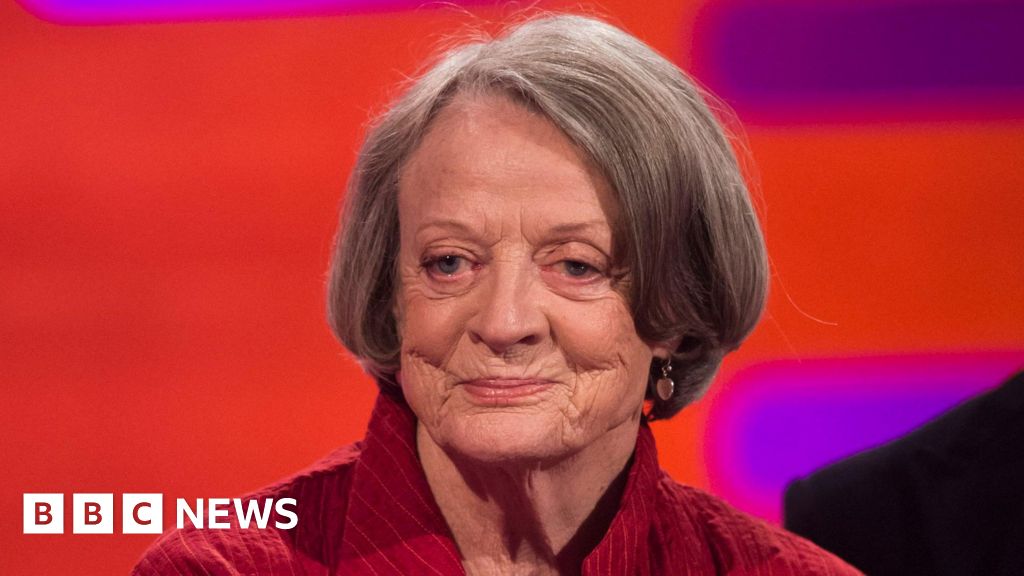
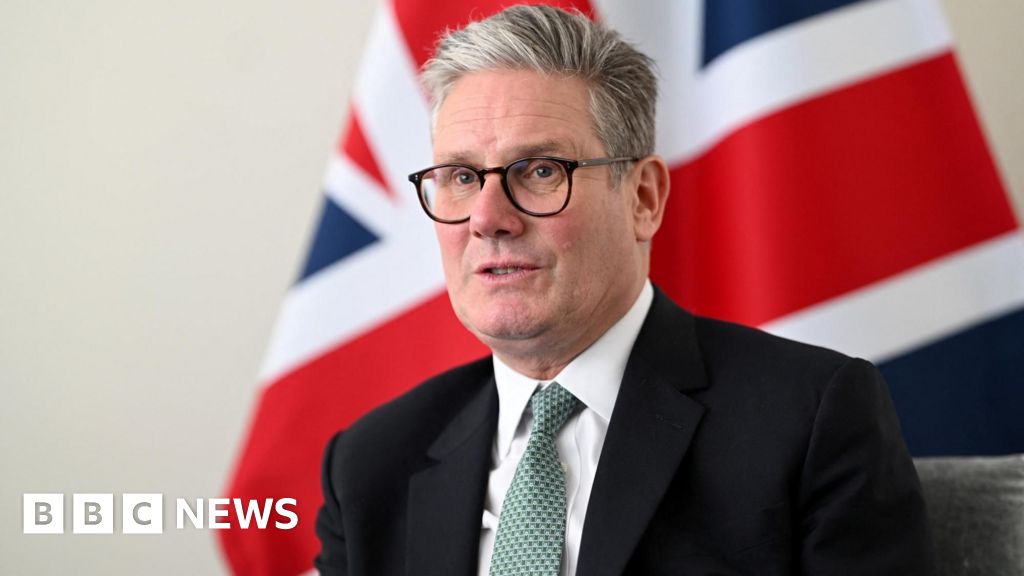


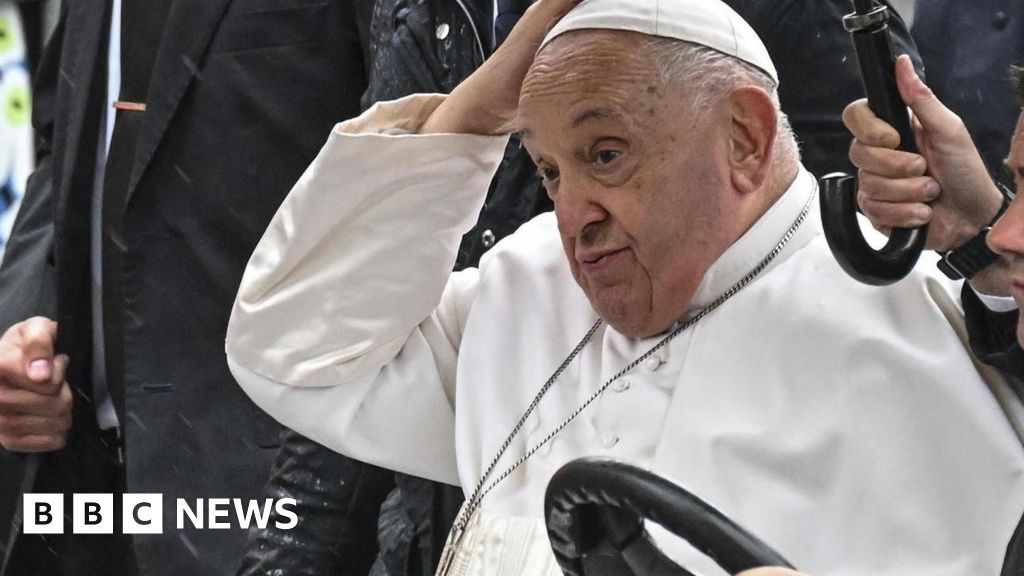

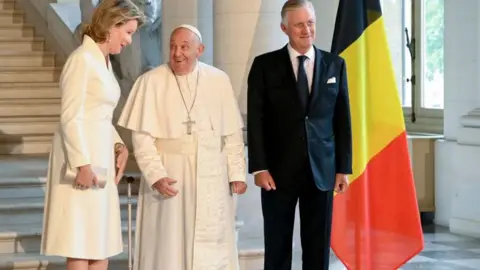
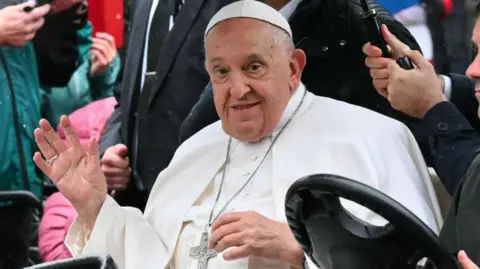


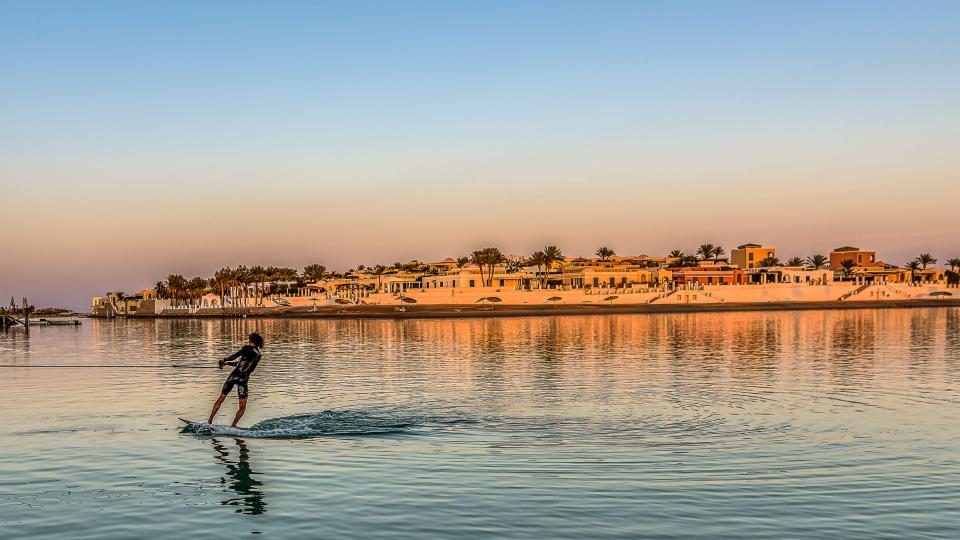


























































































































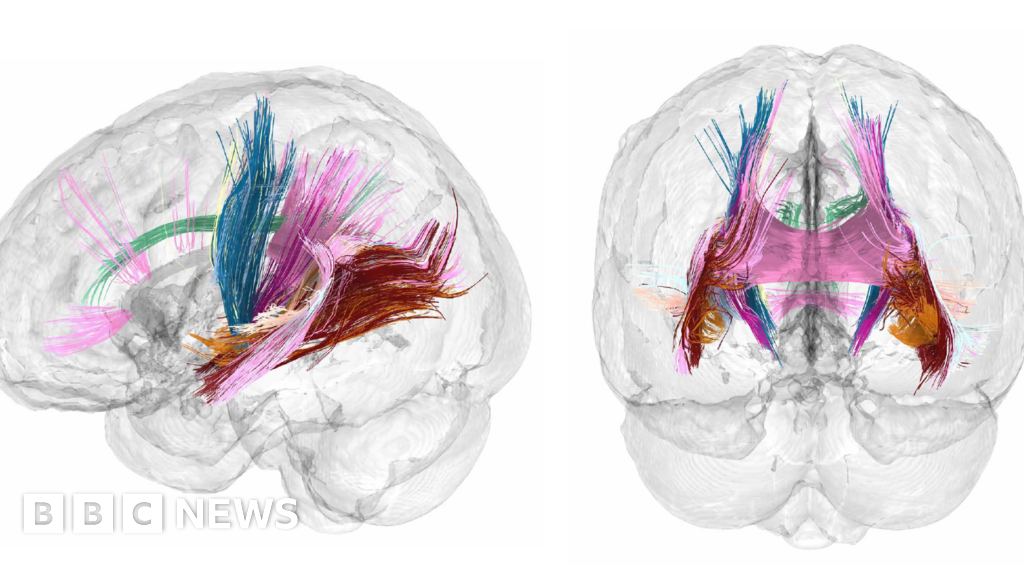




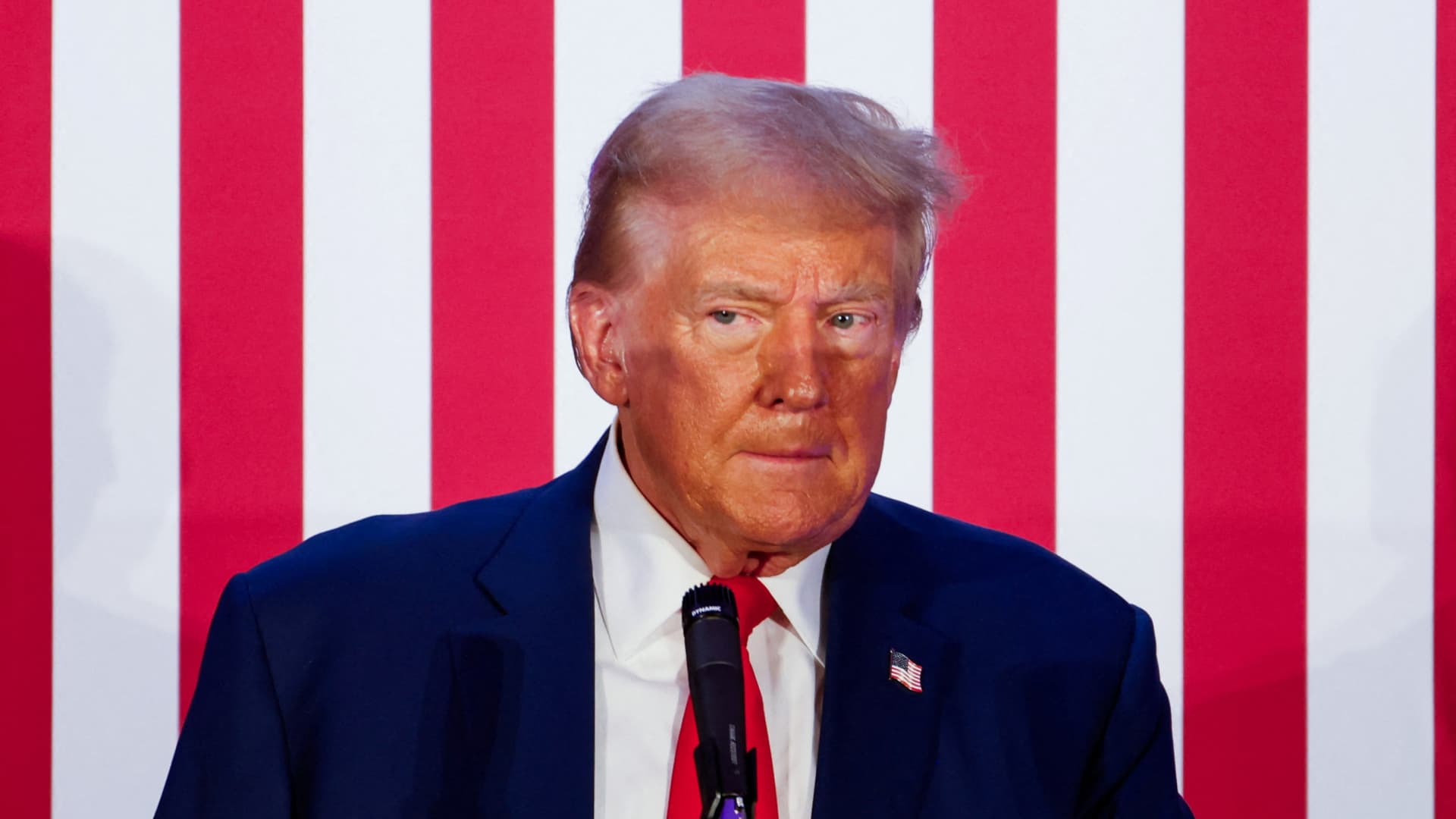
You must be logged in to post a comment Login